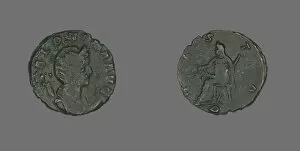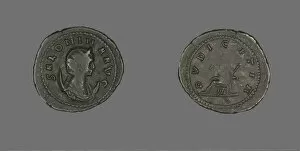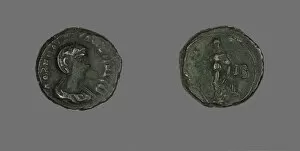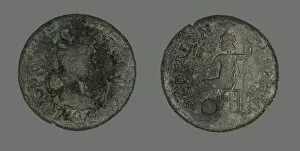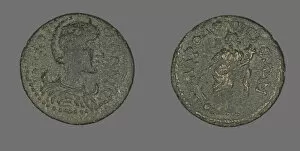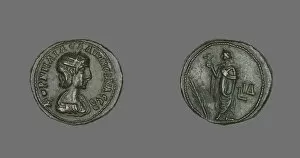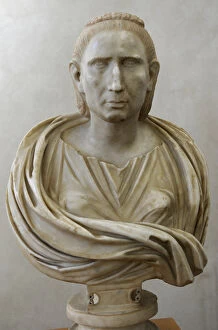Salonina Collection
Salonina, also known as Julia Cornelia Salonina, was a prominent figure in ancient Rome
Coin Portraying Empress Salonina, 264-265. Creator: Unknown
Coin Portraying Empress Salonina, 264-265
Coin Portraying Empress Salonina, 254-268. Creator: Unknown
Coin Portraying Empress Salonina, 254-268
Coin Portraying Empress Salonina, 266-267. Creator: Unknown
Coin Portraying Empress Salonina, 266-267
All Professionally Made to Order for Quick Shipping
Salonina, also known as Julia Cornelia Salonina, was a prominent figure in ancient Rome. She held the esteemed title of Augusta and was the wife of Roman Emperor Gallienus. Throughout her life, she was commemorated on various coins that showcased her regal beauty. One such coin portrays Empress Salonina during the years 253-268. The creator remains unknown, but their skill is evident in capturing her likeness with intricate details and fine craftsmanship. Another coin from 264-265 further immortalizes Salonina's image, showcasing her grace and elegance. An Antoninianus coin dating back to 260-268 depicts Empress Salonina once again, highlighting her importance during this period. The artist behind this creation expertly captures her features and radiance. In another remarkable piece from around 256, an unknown creator showcases Salonina's allure through a Tetradrachm coin. This portrayal emphasizes not only her physical beauty but also hints at the power she wielded as an empress. Throughout different periods of history between 254-268 and even beyond, numerous coins were minted portraying Empress Salonina. These pieces serve as a testament to both her influence within Roman society and the lasting impact she had on artistry during that era. While little is known about specific artists who crafted these coins or their techniques used for creating such masterpieces, one thing remains clear: they sought to capture the essence of Empress Salonina's magnificence for generations to come. Additionally, it is worth noting that alongside these coins featuring it can other historical artifacts like a bust of Matidia from the second century or a portrait depicting Cornelia Salonina herself from the mid-third century. These items provide further insight into the lives of powerful women who played significant roles in shaping ancient Rome.



